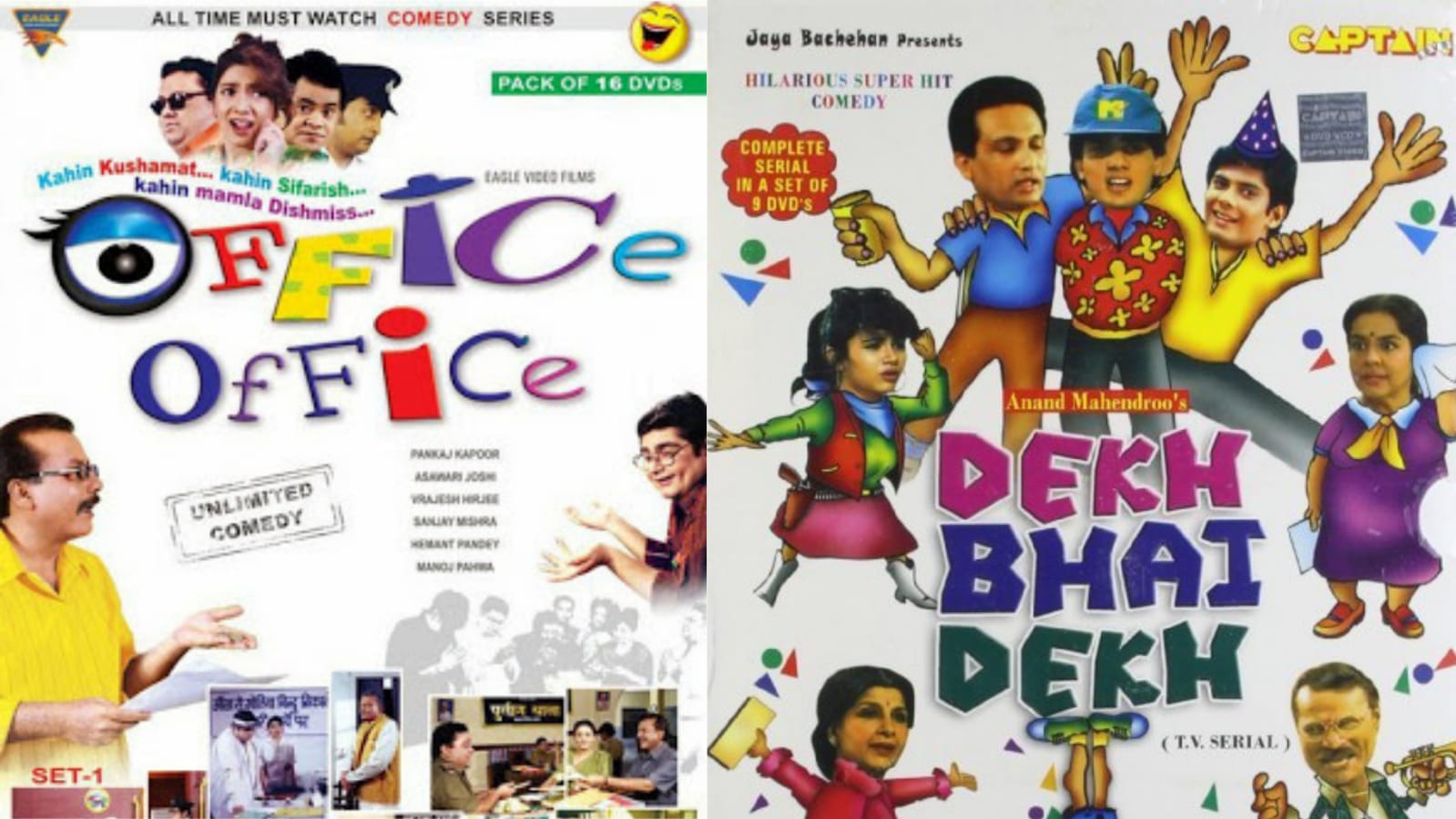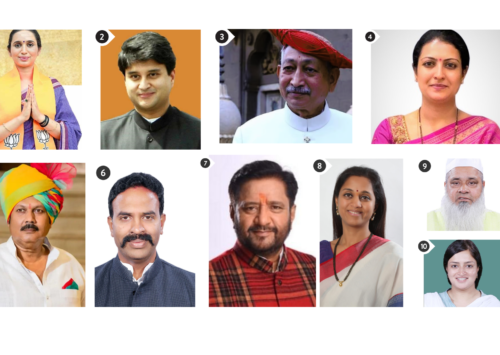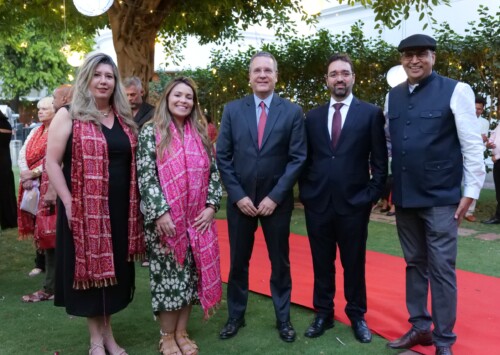Poor sense of humour behind India’s failure to produce sitcoms
In 1993, whole family from grandchildren to grandparents, the three generations under one roof, all gathered in front of a small television just to spend 20 minutes to enjoy the show Dekh Bhai Dekh and drown their sorrows and pain by laughing at the jokes and satirical scenes set by it.
In 2022, however, the weekly custom of gathering in front of the television is lost. The same family which used to schedule their chores according to the timings of a sitcom aired on television like Dekh Bhai Dekh or Office Office (2001) has abandoned that tradition as it is unable to find good sitcoms to enjoy together.
With the release of OTT (Over The Top) platforms and the ease and flexibility that they offer, several people have switched to watching their favourite TV shows on Netflix, Amazon Prime or the OTT platforms of the GEC channels. Television in this era has lost the impact which it used to have in the early days. However, with the decline in TV viewership, there also has been a decline in the production of sitcoms over the years.
Viewers looking for high-quality sit-coms or comedy shows find little options. Few shows in this era such as Tarak Mehta Ka Ooltah Chashmah (2008-running), Bhabi Ji Ghar Par Hai! (2015-running) and The Kapil Sharma Show (2016-running) are the left with them. The last show however is a comedy chat-show rather than a sitcom.
But this scarcity was not always the norm. In the 1990s, television programming was filled with many comedy shows that tickled the Indian audiences’ funny bone. Apart from Dekh Bhai Dekh and Office Office; Zabaan Sambhalke (1993-1998), Hum Paanch (1995-1999) and the Flop Show (1989) are a few memorable shows which still manages to captivate the audience and provide comical relief.
Secret of success of early sitcoms
Sitcoms such as Dekh Bhai Dekh documented the trials and tribulations along with the idiosyncrasies of the Diwan family who made fun of each other at every turn and waking moment. The show took viewers through the ups and downs of the family. The relationships, work troubles, romantic entanglements and daily chores of the family were aired to the viewers infused with a good dose of laughter.
Zabaan Sambhalke, deeply inspired from the famous BBC show, Mind Your Language, simple comedy show providing double entendre jokes and set inside a classroom where foreigners have come to learn Hindi. The simple-minded jokes and satirical scenes set by the show managed to appeal to the audience. The sitcom also touched the comical aspects of the religion of the students and the ethnic disparities they had, infusing them with idiosyncrasies and alienation of the group of students who had come to learn Hindi at the institution provided the comic fodder in the show.
Apart from the simplistic environment set by the shows, the show incorporated good casting of actors and actresses who brought the characters to life. Dekh Bhai Dekh had, Shekhar Suman, Navin Nischol, Farida Jalal, Bhavana Balsaver, Deven Bhojani, Sushma Seth, Vishal Singh, Amar Upadhyay and Urvashi Dholakia. In Office Office, the cast included Pankaj Kapur, Sanjay Mishra, Asawari Joshi, Manoj Pahwa, Deven Bhojwani, Hemant Pandey and Eva Grover. With such intelligent casting and beautiful craftsmanship, the shows resonated among the audiences.
The shows in the 1990s like Hum Panch, Flop Show or Office Office, all set a fictional environment pandering to the audience as they relate to their day-to-day life and share a laugh or two. Even recent successful sit-coms like Tarak Mehta Ka Ooltah Chashmah and Bhabhi Ji Ghar Par Hai! have set an environment where ‘safe comedy’ is used to produce jokes. These shows have been using the foundation stones laid by the early comic sensations.
Why is there a decline in shows?
From the 1990s to the early 2000s the television industry saw a rise in stand-up comedy and comedy reality shows. In 2006, the show Comedy Circus was quite famous and with contestants competing against each other presenting their satirical bits to the audience as well as the judges. The show has given many successful comics to the entertainment industry like Kapil Sharma, Suni Grover and Krushna Abhishek. However, such shows have also ceased to exist, few of them, however, have sprung over recently such as Comicstaan which are hosted over Amazon Prime.
“Indian audience have become overly-sensitive. All the humour today is safe humour. You are always afraid that you will hurt somebody or the other. The whole idea behind humour is to sting, it is to make you feel uncomfortable. Guy slipping on a banana and an old man sneezing is funny to me, but it is hell for them. So, what can you joke about? ” asks Ramesh Tekwani, documentary and short filmmaker.
“In America, people joke about anything that you are from a particular country, you are black, you are white, you are grey, over here people are very sensitive. Here humour can’t be exploited as there are far too many cows who might take offence on anything,” Tekwani tells Media India Group, comparing the sit-coms in India and the United States.
“The concept of safe comedy good but if a show needs to run for 10-15 years, then it needs to expand the content. Due to these I would say, yes there is a shortage of humour. Is there a shortage of good humour? Yes, there is a shortage of good humour,” says Tekwani.
The short-film maker explains that there is no scarcity for writer who wants to write good humour but rather that no one wants to risk producing shows just to be slapped with a lawsuit or FIR. “There is no shortage of material being written or availability of material, it’s just that it’s not being aired,” says Tekwani.
While some might feel that rise in stand-up comedies and vines might be the reason behind the failure of sit-coms in early stages. Tekwani begs to differ. He feels the rise in stand-up comedies have nothing to do with the scarcity in the production of sit-coms. “No, I don’t think that stand-ups are hurting the production of sit-coms. Stand-up comedy has always been there in India. Hasya Kavi Sammelan is nothing but stand-up comedy. People come up on the stage and present their bit, that’s the crux of stand-up comedy,” he says.










